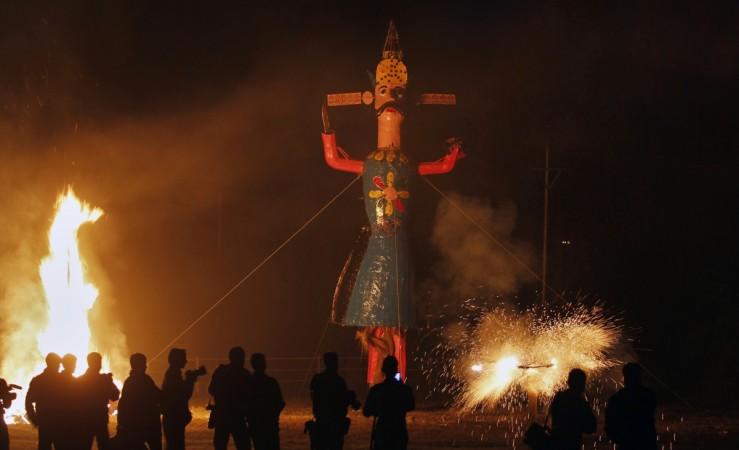
Dussehra (Dasara), also known as Vijaya Dashami, is a famous Hindu festival that seeks to celebrate the victory of good over evil.
The festivity is marked on the 10th day of the bright half (Shukla Paksha) of the month of Ashvin, also known as Ashwayuja, according to the Hindu calendar. This year Dussehra falls on 22 October.
Dussehra is derived from Sanskrit word "Dasha-hara", which means the removal of 10 bad qualities.
The festival of Dussehra has been considered to symbolise the celebration of good over evil while marking the Hindu god Rama's victory over the demon king Ravan to rescue his abducted wife Sita.
It is celebrated by millions of citizens across the country, which is also called as Dasara or Dashain in different places.
Large outdoor fairs and melas are held with huge display of effigies of Ravana (the mythical king of ancient Sri Lanka) on the day. The effigies are later burnt on bonfires, while the crowd burst into cheers.
Dussehra also marks the end of the auspicious nine-day festival called Navratri. On the day of Dussehra, the deities installed on the first day of the Navratri are immersed in water, and devotees, who engage on fast during the nine days, visit each other and exchange sweets.
Every year, plays are performed in different parts of the country, which re-enacts Hindu deity Rama's battle to kill the 10-headed demon king Ravana.
Ramleela play is one of the oldest and most popular acts in India, and is performed at the Red Fort ground (Lal Qila Maidan), New Delhi by the Luv Kush Ramlila Committee.
Hundreds of people flock to watch the play, which is based on the epic Ramayana.
Apart from India, Dussehra is also celebrated in various countries including Nepal, Sri Lanka, and Bangladesh in different forms

















